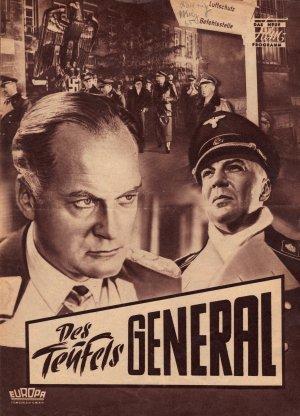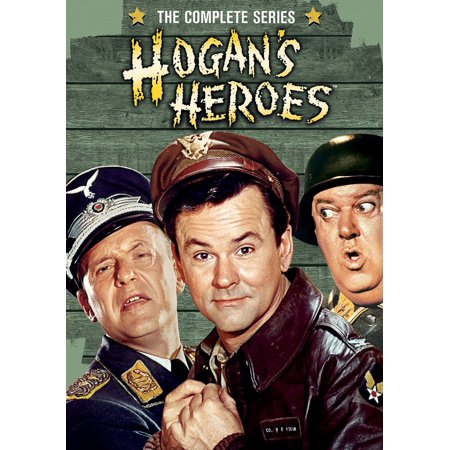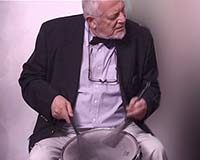The Devil’s General and the “Idealist”
Karl Zuckmayer and Ernst Udet were friends.
Zuckmayer, who was half-Jewish and an anti-Nazi, left Germany for Austria when Hitter rose to power. In 1938, he left Austria for Switzerland and then emigrated to the United States.
Udet, a daredevil pilot helped build the Luftwaffe up after Hitler came to power. He was not on good terms with the Nazis and was skeptical about their ability to win a world war. After the victory of the Royal Air Force in the Battle of Britain, his skepticism increased. He committed suicide in November of 1941, after Nazi Germany invaded the Soviet Union – before victories turned into defeat.

I saw the film version of the Devil’s General in an East Side Art Theater in 1955, the year of its release. At the time something bothered me and it still does. Oberst Friedrich Eilers is described as a Nazi idealist General Harry Harras is The Devil’s General aka Ernst Udet., Ingenieur Karl Oderbruch is Harras’ friend. Oderbruch has been sabotaging fighter planes and Eilers flies in one of them to his death. Thus Oderbruch was responsible for the death of their mutual friend, a man who believed in “the cause.” The denouement is the death of Harras who commits suicide by crashing one of the defect planes into the airport.
Here’s my problem: How can a Nazi be a Nazi idealist? Isn’t that a contrast in terms? What as Zuckmayer getting at? Did he think there was such a conglomerate as a man of integrity who believed in the cause? The cause was dishonorable, and you cannot fight honorably for a dishonorable cause.
National Socialism was a German nationalistic ideology that advocated the conquest and enslavement of other nations, as well as racial purity, and in order to achieve that purity, Germany engaged in genocide
That’s as clear as can be. The goals were candidly stated by Hitler and his cohorts. You can very well be a Nazi, but you cannot be a Nazi and an idealist.
Marxism is another matter. Marxism is internationalist ideology that advocates meliorism. You can be a Marxist and an idealist (albeit, some might say a misguided one). Stalin used Marxism as a cover for conquest, enslavement and mass murder.

Autor: Carl Zuckmayer.Foto: Archiv S. Fischer Verlag.
What was Zuckmayer getting at? Did he want to provide an alibi for some advocates of National Socialism? Were they good people who were duped? I say definitely not! Those who believed in the “cause” knew what it was all about.
Inglorious Basterds (sic) and Inglorious Depictions
Here are some inglorious Third Reich depictions:
In Hogan’s Heroes, the Sixties World-War-Two sit-com series, the German officers and soldiers are presented as likeable bunglers constantly outsmarted by the allied prisoners. There is absolutely no reference to Nazi propaganda, nor is there ever any physical abuse. (Auschwitz must have been on another planet.)

This series, which is constantly rebroadcast on German TV, is an idealization of National Socialism, which goes far beyond what any Third-Reich Revisionist could cook up.
The award-winning Life Is Beautiful, starts out as a tepid B-film slapstick love-affair à la Buster Keaton, bicycle-for-two and all. Keaton was, however, A-fair, but Beautiful never pokes its head out of the B-category. (Buster, please forgive me for making this sacrilegious comparison!)
Then the romantic peace-time slapstick fades into war-time slapstick. The transition is very mild.
Even internment a German Death Camp can’t cast a shadow over the hero’s good mood and the sunny upbringing of his small son.
As he is marched to death, he parodies the goose step, giving his son, who is watching, the final comic touch. The “bang” is off-screen. Of course, the German guard didn’t knock him down and shoot him on the spot, which was the usual reaction to mockery.
“Violence is one of the most fun things to watch,” says Quentin Tarantino. “Would I watch a kung-fu movie three days after the Sandy Hook massacre?” he asks. “Maybe. Because they have nothing to do with each other,” he answers.
I don’t know, but I wouldn’t be so sure!

In Pulp Fiction, which is a fitting title, Samuel L. Jackson plays a hit man who quotes Biblical verse – a very amusing touch which provides some chuckles. Of course, there would have been no likelihood of any hit man delving into the Bible before 1994.
The Inglorious Basterds want to take revenge on the Nazis for Auschwitz, and indeed there were Jewish American soldiers, as well as other Jews, who hunted down SS members to give them their own medicine.
Christoph Waltz in is an SS Officer like no other. He’s a fine actor and his bravura over-the-top performance is a fascinating rug-chewing, leap away from reality, as is the whole film, minus the adjective “fascinating.”
In Basterds the roles are reversed. Is this wishful thinking? Here are some “fun things to watch.” The Jewish avengers emulate the Nazis in brutality, murdering and bludgeoning – and even scalping as they go along. In the last scene Waltz’s SS officer gets the swastika carved onto his forehead by a bloodthirsty Brad Pitt. Before this flesh-work scene, Hitler, Goebbels, Göring and consorts are burned to a crisp in a Paris movie theater. How’s that for historical accuracy?

Christoph Waltz
More Tarrantino: “I hate that hand-wringing shit. Holocaust movies always have Jews as victims,” We’ve seen that story before. I want to see something different. Let’s see Germans that are scared of Jews. Let’s not have everything build up to a big misery, let’s actually take the fun of action-movie cinema and apply it to this situation….One of the things that’s interesting to me is equating the Jews in this case with the Indians in a Western. Maybe it’s not nothing that I’m 25percent Cherokee Indian. If I go do a movie of Jewish Americans fighting back in World War II, then I equate them with the other race that I am, and I use the Indian battle plan, their methods, to attack the Nazis. Why isn’t that all right? He’s a Nazi! They’re giving him a scar. I don’t know if I would even go so far as to call that torture. He’s scarring him. He’s not torturing him. What he’s doing isn’t so ridiculously painful.”
Tarantino’s characters speak and act. Brad Pitt‘s Lt. Aldo Raine: “We will be cruel to the Germans, and through our cruelty they will know who we are. They will find the evidence of our cruelty in the disemboweled, dismembered, and disfigured bodies of their brothers we leave behind us. Every man under my command owes me 100 Nazi scalps.”
Bat-wielding “Bear Jew” (played by Eli Roth, the horror film director): “It’s almost a deep sexual satisfaction of wanting to beat Nazis to death, an orgasmic feeling. My character gets to beat Nazis to death. That’s something I could watch all day. My parents are very strong about Holocaust education. My grandparents got out of Poland and Russia and Austria, but their relatives did not.”[1]
A personal note: Members of my family were victims of the Nazis. I was present at the age of three when SA-marauders ransacked my grandmother’s apartment. If I’d had the chance in later years, I’d have polished off those SA-criminals without batting an eye. And I’d have gone off whistling. That of course would have been an “ideal” situation that almost never occurs.
I definitely do not want to be a victim, but the last thing I want to be on this earth is a Nazi.
The theme of Jewish revenge for Auschwitz is a serious theme which could indeed be brought to film, but with some sort of factual basis, rather than as a simple sadistic revenge-fantasy.
“Inglorious” fits these depictions to T!
to be continued . . .
– Herbert Kuhner









 Users Today : 36
Users Today : 36 Users Yesterday : 138
Users Yesterday : 138 This Month : 3517
This Month : 3517 This Year : 9576
This Year : 9576 Total Users : 191381
Total Users : 191381 Views Today : 118
Views Today : 118 Total views : 1894409
Total views : 1894409 Who's Online : 4
Who's Online : 4




